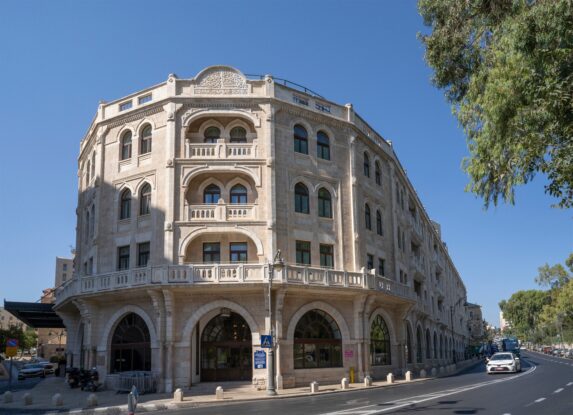A dispute has erupted between several apartment owners at the Waldorf Astoria Residences in Jerusalem and the building’s management committee. Management has banned short-term luxury property rentals, arguing that they undermine the building’s prestige. While a lower court initially ruled in favor of the apartment owners, the District Court later reversed the decision. Now, Supreme Court Justice Daphne Barak-Erez has called on the Attorney General to weigh in with a formal opinion that could set a precedent for disputes involving luxury property rentals across Israel.
By Doron Breitman, Nadlan Center
Last week, Justice Daphne Barak-Erez of the Supreme Court requested the opinion of Attorney General Gali Baharav-Miara on a legal dispute concerning the right to offer luxury property rentals for short periods—ranging from days to weeks—at the Waldorf Astoria Residences in Jerusalem. The request was made after apartment owners filed an appeal challenging a previous district court ruling.
At the heart of the case is a residential building on Agron Street in Jerusalem, adjacent to the Waldorf Astoria Hotel. The building is part of a development project by IPC Jerusalem that includes both the residential property and the hotel, which is considered one of Israel’s most luxurious. The residential building has eight floors with about thirty apartments and several units on the ground floor designated as “commercial apartments.”
A dispute broke out between several owners of the standard residential apartments and the building’s management committee over the right to offer these units as luxury property rentals on a short-term basis. The owners argue that the building’s bylaws were not intended to restrict short-term rentals and contain no explicit prohibition against them. In contrast, the management claims that short-term leasing—especially when advertised on platforms like Airbnb and Booking.com—damages the building’s prestige. They also assert that resolutions passed at general meetings, both before and after the registration of the bylaws, prohibit short-term rentals.
According to the district court ruling from June 2024, the thirty apartments are owned by roughly twenty individuals, many of whom own more than one unit. Most are not Israeli residents and typically use their apartments only during holidays. As a result, the building consists largely of what are commonly referred to as “ghost apartments,” remaining empty for much of the year.
Residents Appeal to Supreme Court, AG Asked to Weigh In
The bylaws distinguish between two types of units: residential apartments and commercial units located at street level. For the commercial units, the bylaws state, “Each owner may use their apartment for any commercial purpose.” In contrast, the residential apartments are designated strictly for residential use, prohibiting any commercial or other non-residential activities. The central issue in dispute is whether short-term rentals—especially when publicly listed on platforms like Airbnb or Booking.com—constitute a commercial use that breaches this rule.
The initial legal forum for the case was the Land Registry Supervisor, who sided with the apartment owners and permitted short-term rentals. However, the building committee appealed the decision to the Jerusalem District Court, which overturned the ruling. In its June judgment, Judge Tamar Bar-Asher wrote: “According to the bylaws of the residential building adjacent to the Waldorf Astoria Hotel, short-term leasing of residential units is prohibited. Long-term rentals are permitted.”
Following this ruling, the apartment owners filed a further appeal to the Supreme Court. As part of the proceedings, the court has now invited the Attorney General to weigh in on the broader legal question: whether the use of apartments for short-term rentals can be restricted based on a building’s bylaws.
The outcome of this case may set a precedent for other disputes involving luxury property rentals in high-end residential buildings across Israel.

Nadlan Center is Israel’s leading real estate news and knowledge platform in Hebrew, created for industry professionals. Founded by experts in the field, it delivers in-depth, up-to-date coverage on urban renewal, planning and construction, taxation, and housing policy — tailored to the needs of developers, investors, planners, and financiers. In addition to its widely read news content, Nadlan Center hosts major industry events, professional conferences, and training programs that support the growth and development of the Israeli real estate sector.
Learn more: https://www.nadlancenter.co.il







